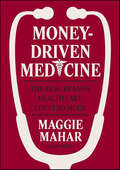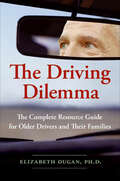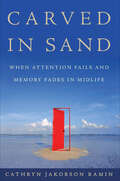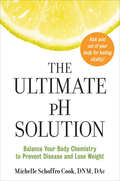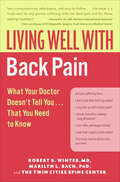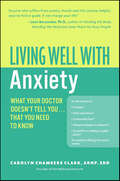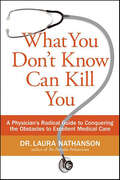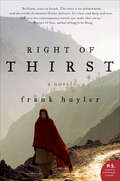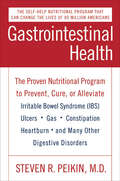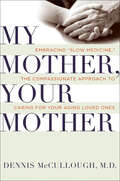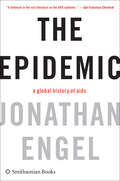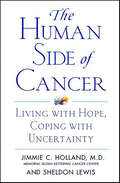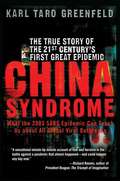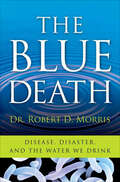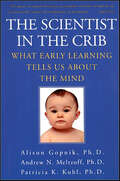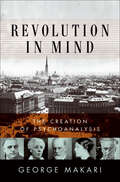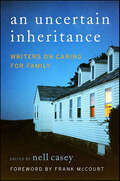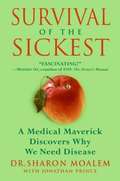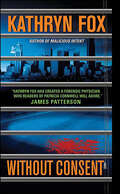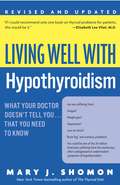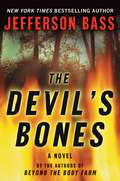- Table View
- List View
Money-Driven Medicine: The Real Reason Health Care Costs So Much
by Maggie MaharWhy is medical care in the United States so expensive? For decades, Americans have taken it as a matter of faith that we spend more because we have the best health care system in the world. But as costs levitate, that argument becomes more difficult to make. Today, we spend twice as much as Japan on health care—yet few would argue that our health care system is twice as good.Instead, startling new evidence suggests that one out of every three of our health care dollars is squandered on unnecessary or redundant tests; unproven, sometimes unwanted procedures; and overpriced drugs and devices that, too often, are no better than the less expensive products they have replaced.How did this happen? In Money-Driven Medicine, Maggie Mahar takes the reader behind the scenes of a $2 trillion industry to witness how billions of dollars are wasted in a Hobbesian marketplace that pits the industry's players against each other. In remarkably candid interviews, doctors, hospital administrators, patients, health care economists, corporate executives, and Wall Street analysts describe a war of "all against all" that can turn physicians, hospitals, insurers, drugmakers, and device makers into blood rivals. Rather than collaborating, doctors and hospitals compete. Rather than sharing knowledge, drugmakers and device makers divide value. Rather than thinking about long-term collective goals, the imperatives of an impatient marketplace force health care providers to focus on short-term fiscal imperatives. And so investments in untested bleeding-edge medical technologies crowd out investments in information technology that might, in the long run, not only reduce errors but contain costs.In theory, free market competition should tame health care inflation. In fact, Mahar demonstrates, when it comes to medicine, the traditional laws of supply and demand do not apply. Normally, when supply expands, prices fall. But in the health care industry, as the number and variety of drugs, devices, and treatments multiplies, demand rises to absorb the excess, and prices climb. Meanwhile, the perverse incentives of a fee-for-service system reward health care providers for doing more, not less.In this superbly written book, Mahar shows why doctors must take responsibility for the future of our health care industry. Today, she observes, "physicians have been stripped of their standing as professionals: Insurers address them as vendors ('Dear Health Care Provider'), drugmakers and device makers see them as customers (someone you might take to lunch or a strip club), while . . . consumers (aka patients) are encouraged to see their doctors as overpaid retailers. . . . Before patients can reclaim their rightful place as the center—and indeed as the raison d'être—of our health care system," Mahar suggests, "we must once again empower doctors . . . to practice patient-centered medicine—based not on corporate imperatives, doctors' druthers, or even patients' demands," but on the best scientific research available.
The Driving Dilemma: The Complete Resource Guide for Older Drivers and Their Families
by Elizabeth DuganIt's no secret that our population is aging. In fact, it won't be long before one in four drivers will be over the age of 65. Research suggests we'll outlive our ability to drive by almost ten years—but knowing when to stop or limit driving isn't always clear. The Driving Dilemma is a comprehensive resource for older drivers and their families facing questions about driving safety. Dr. Dugan provides clear, useful information about the effects of age, medical conditions, and medications on driving. She offers practical advice on how to discuss this issue with loved ones. Such talks can be difficult, and the book provides not only the facts, but also a research-based approach to communication, with useful sample dialogue scripts that will help you discuss driving with your loved ones. Also included are state-by-state listings of available resources, making this book a total information source for families.
Carved in Sand: When Attention Fails and Memory Fades in Midlife
by Cathryn Jakobson RaminWhy can't you remember where you put your keys? Or the title of the movie you saw last week? Anyone older than forty knows that forgetfulness can be unnerving, frustrating, and sometimes terrifying. With compassion and humor, acclaimed journalist Cathryn Jakobson Ramin explores the factors that determine how well or poorly one's brain will age. She takes readers along on her lively journey—consulting with experts in the fields of sleep, stress, traumatic brain injury, hormones, genetics, and dementia, as well as specialists in nutrition, cognitive psychology, and the burgeoning field of drug-based cognitive enhancement. Along the way, she turns up fresh scientific findings, explores the dark regions of the human brain, and hears the intimate confessions of high-functioning midlife adults who—like so many of us—are desperate to understand exactly what's going on upstairs.
Vaccinated
by Paul A. OffitMaurice Hilleman's mother died a day after he was born and his twin sister stillborn. As an adult, he said that he felt he had escaped an appointment with death. He made it his life's work to see that others could do the same. Born into the life of a Montana chicken farmer, Hilleman ran off to the University of Chicago to become a microbiologist, and eventually joined Merck, the pharmaceutical company, to pursue his goal of eliminating childhood disease. Chief among his accomplishments are nine vaccines that practically every child gets, rendering formerly dread diseases-including often devastating ones such as mumps and rubella-practically toothless and nearly forgotten; his measles vaccine alone saves several million lives every year. Vaccinated is not a biography; Hilleman's experience forms the basis for a rich and lively narrative of two hundred years of medical history, ranging across the globe and throughout time to take in a cast of hundreds, all caught up, intentionally or otherwise, in the story of vaccines. It is an inspiring and triumphant tale, but one with a cautionary aspect, as vaccines come under assault from people blaming vaccines for autism and worse. Paul Offit clearly and compellingly rebuts those arguments, and, by demonstrating how much the work of Hilleman and others has gained for humanity, shows us how much we have to lose.
The Ultimate pH Solution: Balance Your Body Chemistry to Prevent Disease and Lose Weight
by Michelle Schoffro CookControl the level of acid in your body and reclaim your health with this simple, step-by-step programBeginning a healthier lifestyle can be as easy as starting your day sipping a glass of water with a squeeze of lemon juice. Drinking this simple drink is only one of the many ways, all outlined in The Ultimate pH Solution, that you can change your body's pH and ward off disease. Too much acid in your blood can cause a host of health problems, but with cutting-edge, medically sound research, this indispensable guide offers an easy-to-follow plan and simple lifestyle changes that will help you kick acid and stay healthy.The Ultimate pH Solution also includes real-life success stories of people who have overcome disease and lost weight by balancing their pH levels, along with 50 recipes for delicious pH-powerful dishes. Learn why high-protein diets may be harmful to your health, why eating dairy may not help you avoid osteoporosis, and how to lower the acid levels in your body for optimal health.
Living Well with Back Pain: What Your Doctor Doesn't Tell You...That You Need to Know
by Robert B. Winter Marilyn L. Bach“[A] must read for any person suffering with low-back pain and for those seeking treatment.” — Howard S. An, M.D., the Morton International Endowed Chair, Professor of Orthopaedic Surgery, Rush University Medical Center“As a spine surgeon with over 35 years of experience… I will definitely recommend it to my patients.” — Mark D. Brown, M.D., Ph.D., Professor & Chairman, Department of Orthopaedics & Rehabilitation, Leonard M. Miller School of Medicine, University of Miami“The information is scientifically sound and is written by one of the giants of spinal care, Dr. Robert Winter.” — Dale E. Rowe, MD“[P]rovides comprehensive information regarding the various evidence-based treatment options available…Will guide [patients] into appropriate treatment pathways.” — Thomas G. Lowe, MD, Clinical Professor - Orthopaedics, University of Colorado Health Sciences Center, Woodridge Spine Center, PC“[A] reader-friendly, comprehensive guide that will prove invaluable for persons with back pain.” — Darlene Kvist, M.S., C.N.S., L.N., Director, Nutrional Weight and Wellness, Saint Paul, Minnesota“Very well written....easy to read and covers EVERYTHING. I wish I had had [this book] before my surgery.” — Arlyne Selvestra, back pain patient“[E]xtremely comprehensive, easy to read, and...full of important information and references.” — Patricia Brahm, back pain patient“A must-have resource for anyone who is experiencing back pain or who is considering surgery.” — Lisette Wright, back pain patient“LIVING WELL WITH BACK PAIN is unique in breadth and scope.” — Alfred Messore, MD, Psychiatrist, American Board of Psychiatry and Neurology; Former Program Director, Washington Psychiatric Society“[J]ust what the spine doctor ordered...invaluable.” — Clifford B. Tribus, MD, Associate Professor, University of Wisconsin Department of Orthopedics and Rehabilitation“This is a very comprehensive book about back pain that covers all aspects of treatment...clearly written and easily understandable.” — Leon Root, MD, Department of Orthopaedic Surgery, Hospital for Special Surgery“The authors EMPOWER patients to take charge of their back pain...cutting-edge and easy to follow.” — Alex Vaasen, L. P, Senior Staff and Quality Co-coordinator, Department of Physiotherapy, Leiden Medical Center, Leiden, the Netherlands“A welcome addition to the body of literature on this important subject.” — Janice T. Sacks, Vice Chair, Scoliosis Association, Inc.“A fireside chat for back pain sufferers, with all the tools a patient needs to conquer back pain...Highly recommended.” — Ronald Moskovich, M.D., F.R.C.S., Associate Chief, Spine Surgery, NYU Hospital for Joint Diseases“I strongly recommend is to anyone who has back pain, has had back pain, or wants to...avoid back pain.” — William C. Lauerman, MD., Georgetown University Hospital, Department of Orthopaedics
Living Well with Anxiety: What Your Doctor Doesn't Tell You . . . That You Need to Know (Living Well)
by Carolyn Chambers ClarkA complete guide to the side-effects and treatments for anxiety disordersHigh anxiety is an unfortunate byproduct of this world, and for approximately 20 million American adults a year, anxiety becomes a debilitating part of their lives. The psychological can become physical, causing dizziness, stammering, heart palpitations, trembling, shaking, and other symptoms. Unlike other books on anxiety disorders, Living Well with Anxiety offers a holistic approach to minimizing anxiety, presenting both conventional psychiatric and psychological approaches to anxiety conditions, as well as patient anecdotes, and nutrition, herbal, environmental, exercise and other healing measures to combat this disorder. Living Well with Anxiety contains helpful advice for a wide range of anxiety disorders, including social anxiety disorder, panic disorder, obsessive compulsive disorder and various phobias that cause anxiety. With a comprehensive resource section that contains websites, doctors, and helpful articles, this book, like all of the titles in the successful Living Well series, offers positive and far-reaching solutions to building a healthier life, both emotionally and physically.
What You Don't Know Can Kill You: A Physician's Radical Guide to Conquering the Obstacles to Excellent Medical Care
by Laura NathansonIn 2003, Dr. Laura Nathanson was widowed after the misdiagnosis of her beloved husband. After this tragedy, she was determined to help others protect themselves and their loved ones from similarly preventable health care disasters—and help them benefit from health care miracles.In What You Don't Know Can Kill You, Dr. Nathanson provides a guide to getting the best medical care and navigating our frustrating and often impenetrable health care system. In clear, non-medical language, she shows how to:Flag any signs of misdiagnosis and misleading analysis of symptomsPrevent miscommunication among specialists from having dire consequencesStay safe in the hospital and bypass its dangers· Choose a health care plan without falling into the "uncovered services" trapFull of empathy for each individual patient and caregiver, What You Don't Know Can Kill You will empower patients to be their own best advocates.
Right of Thirst: A Novel (P. S. Ser.)
by Frank Huyler“It’s brilliant, start to finish. The voice is an achievement, and the world of emotion he delivers. It’s solid-so solid it reminds me of a mature Hemingway. . . . It’s clear and deep and wise.” — Stewart O'Nan, author of Songs for the Missing, on RIGHT OF THIRST“One of the finest novels I’ve read in years. . . . Ultimately, this book is a timely, powerful exploration into the uses and limits of benevolence . . . an exploration into the limits of what’s good and decent in the American character.” — Ben Fountain, author of Brief Encounters with Che Guevara“Right of Thirst is a book to treasure. It is a riveting tale of our time, at once haunting and inspiring, provocative and insightful. It will stay with me for a long time.” — Tom Brokaw“Dr. Huyler’s writing is quiet, precise, spellbinding from beginning to end. . . . Easily holds with the best contemporary fiction.” — Abigail Zuger, New York Times“He writes in a surgical fashion—with precision and care, making no sudden metaphorical movements. Huyler’s protagonist resists easy answers or self-congratulatory axioms in examining the ethics of humanitarian intervention — The New Yorker“A book to treasure. It is a riveting tale of our time, at once haunting and inspiring, provocative and insightful. It will stay with me for a long time.” — Tom Brokaw“One of the finest novels I’ve read in years. . . . A timely, powerful exploration into the uses and limits of benevolence . . . the limits of what’s good and decent in the American character.” — Ben Fountain, author of Brief Encounters with Che Guevara“Brilliant, start to finish. . . . It’s clear and deep and wise, and very few contemporary novels can make that claim.” — Stewart O'Nan, author of Songs for the Missing“Lyrical, moving, gripping. . . . A dark, compelling story about moral ambition and its pitfalls-a necessary book for this moment in America’s imperial history.” — Andrew Solomon, author of the National Book Award-winning The Noonday Demon“Resonant. . . . vivid and compassionate. . . . A timely, disquieting reflection on mortality, war and the startling dichotomy between the affluent West and the impoverished Third World.” — Kirkus Reviews
Gastrointestinal Health Third Edition: The Proven Nutritional Program to Prevent, Cure, or Alleviate Irritable Bowel Syndrome (IBS), Ulcers, Gas, Constipation, ... and Many Other Digestive Disorders
by R. PeikinDo you suffer from heartburn? Is an ulcer bothering you? Are the difficult symptoms of irritable bowel syndrome compromising your life? If so, you are not alone. You are that one out of every three Americans that suffers from chronic digestive problems.Whether it's constipation, diarrhea, gas, hemorrhoids, ulcers, heartburn, colitis, gallstones, or one of the many other digestive tract problems, Dr. Steven Peikin's self-help nutritional program will help keep you out of the doctor's office—and feeling great. Based on the latest research and his own clinical experience, Dr. Peikin prescribes a healthy diet high in fiber and low in fat, spices, lactose, and caffeine. He provides a detailed list of "flag foods" to avoid in the case of specific problems; shows you how to use exercise, over-the-counter drugs, prescription drugs, and stress management to complement the program; and offers advice for coordinating the program with weight loss (or weight gain), working with medical professionals, and measuring progress."Highly recommended for its thorough coverage, sound advice, and healthy suggestions,"* Gastrointestinal Health—now revised and updated with the latest information on new drugs and research—is everything you need to know to find fast relief from a wide range of gastrointestinal difficulties.Library Journal
My Mother, Your Mother: What to Expect As Parents Age
by Dennis McCulloughWhat's the right thing to do for mom and dad as they get older?Thanks to advances in science and medicine, more of our parents are living longer than ever before. And though we are rewarded with more time with the people we love, we are also faced with new sets of complications—more diseases, more disability, more need for support and careful judgments. Yet while our health care system may help people live to an older age, it doesn't perform so well when decline eventually sets in. We want to do the best thing but are overwhelmed with the staggering choices we face.Geriatrician Dennis McCullough has spent his life helping families to cope with their parents' aging and eventual final passage, experiences he faced with his own mother. In this comforting and much-needed book, he recommends a new approach, which he terms "Slow Medicine." Shaped by common sense and kindness, grounded in traditional medicine yet receptive to alternative therapies, Slow Medicine advocates for careful anticipatory "attending" to an elder's changing needs rather than waiting for crises that force acute medical interventions—an approach that improves the quality of elders' extended late lives without bankrupting their families financially or emotionally. As Dr. McCullough argues, we need to learn that time and kindness are sometimes more important and humane at these late stages than state-of-the-art medical interventions. My Mother, Your Mother will help you learn how to:—form an early and strong partnership with your parents and siblings;—strategize on connecting with doctors and other care providers;—navigate medical crises;—create a committed Advocacy Team;—reach out with greater empathy and awareness; and—face the end-of-life time with confidence and skill.Although taking care of those who have always cared for us is not an easily navigated time of life, My Mother, Your Mother will help you and your family to prepare for this complex journey. This is not a plan for getting ready to die; it is a plan for understanding, for caring, and for helping those you love live well during their final years. And the time to start is now.
The Epidemic: A Global History of Aids
by Jonathan EngelFrom the Castro bathhouses to AZT and the denial of AIDS in South Africa, this sweeping look at AIDS covers the epidemic from all angles and across the world. Engel seamlessly weaves together science, politics, and culture, writing with an even hand—noting the excesses of the more radical edges of the ACT UP movement as well as the conservative religious leaders who thought AIDS victims deserved what they got. The story of AIDS is one of the most compelling human dramas of our time, both in its profound tragedy and in the extraordinary scientific efforts impelled on its behalf. For gay Americans, it has been the story of the past generation, redefining the community and the community's sexuality. For the Third World, AIDS has created endless devastation, toppling economies, social structures, and whole villages and regions. And the worst may yet be to come: AIDS is expanding quickly into India, Russia, China, and elsewhere, while still raging insub-Saharan Africa.A distinguished medical historian, Engel lets his characters speak for themselves. Whether gay activists, government officials, public health professionals, scientists, or frightened parents of schoolchildren, they responded as best they could to tragic happenstance that emerged seemingly from nowhere. There is much drama here, and human weakness and heroism too. Writing with vivid immediacy, Engel allows us to relive the short but tumultuous history of a modern scourge.
The Human Side of Cancer: Living with Hope, Coping with Uncertainty
by Sheldon Lewis Jimmie C. HollandFor more than twenty years, Dr. Holland has pioneered the study of psychological problems of cancer patients and their families -- whom she calls "the real experts." In The Human Side of Cancer, she shares what she has learned from all of them about facing this life-threatening illness and what truly helps along the cancer journey. This book is the next best thing to sitting in Dr. Holland's office and talking with her about the uncertainty and anxiety elicited by this disease. And it is a book that inspires hope -- through stories of the simple courage of ordinary people confronting cancer.
China Syndrome
by Karl Taro GreenfeldWhen the SARS virus broke out in China in January 2003, Karl Taro Greenfeld was the editor of Time Asia in Hong Kong, just a few miles from the epicenter of the outbreak. After vague, initial reports of terrified Chinese boiling vinegar to "purify" the air, Greenfeld and his staff soon found themselves immersed in the story of a lifetime. Deftly tracking a mysterious viral killer from the bedside of one of the first victims to China's overwhelmed hospital wards--from cutting-edge labs where researchers struggle to identify the virus to the war rooms at the World Health Organization headquarters in Geneva--China Syndrome takes readers on a gripping ride that blows through the Chinese government's effort to cover up the disease . . . and sounds a clarion call warning of a catastrophe to come: a great viral storm potentially more deadly than any respiratory disease since the influenza of 1918.
The Blue Death: Disease, Disaster, and the Water We Drink
by Robert D. MorrisWith the keen eyes of a scientist and the sensibilities of a seasoned writer, Dr. Robert Morris chronicles the fascinating and at times frightening story of our drinking water. His gripping narrative vividly recounts the epidemics that have shaken cities and nations, the scientists who reached into the invisible and emerged with controversial truths that would save millions of lives, and the economic and political forces that opposed these researchers in a ferocious war of ideas. In the gritty world of nineteenth-century England, amid the ravages of cholera, Morris introduces John Snow, the physician who proved that the deadly disease could be hidden in a drop of water. Decades later in the deserts of Africa, the story follows Louis Pasteur and Robert Koch as they raced to find the cause of cholera and a means to prevent its spread. In the twentieth century, burgeoning cities would subdue cholera and typhoid by bending rivers to their will, building massive filtration plants, and bubbling poisonous gas through their drinking water. However, with the arrival of the new millennium, the demon of waterborne disease is threatening to reemerge, and a growing body of research has linked the chlorine relied on for water treatment with cancer and stillbirths.In The Blue Death, Morris dispels notions of fail-safe water systems. Along the way he reveals some shocking truths: the millions of miles of leaking water mains, constantly evolving microorganisms, and the looming threat of bioterrorism, which may lead to catastrophe. Across time and around the world, this riveting account offers alarming information about the natural and man-made hazards present in the very water we drink.
Preventing Miscarriage Rev Ed
by Carol Dix Jonathan ScherA Reassuring and Informative Guide That Offers New Hope For Expectant Parents Along with inspiring accounts of women who have delivered healthy babies after years of heartbreak, Dr. Jonathan Scher provides the latest medical information on preventing recurrent miscarriages, including why couples with "unexplained infertility" actually may be suffering repeat pregnancy loss due to failure of the embryo to implant in the womb, important immunological and tissue tests that may explain or prevent miscarriage, emerging treatments such as heparin and I.V.I.G., updated resources, and much more.
The Scientist in the Crib: What Early Learning Tells Us About the Mind
by Alison Gopnik Andrew N. Meltzoff Patricia K. KuhlThis exciting book by three pioneers in the new field of cognitive science discusses important discoveries about how much babies and young children know and learn, and how much parents naturally teach them.It argues that evolution designed us both to teach and learn, and that the drive to learn is our most important instinct. It also reveals as fascinating insights about our adult capacities and how even young children -- as well as adults -- use some of the same methods that allow scientists to learn so much about the world. Filled with surprise at every turn, this vivid, lucid, and often funny book gives us a new view of the inner life of children and the mysteries of the mind.
Revolution in Mind: The Creation of Psychoanalysis
by George MakariA masterful history of one of the most important movements of our time, Revolution in Mind is a brilliant, engaging, and radically new work—the first ever to fully account for the making of psychoanalysis. In a sweeping narrative, George Makari demonstrates how a new way of thinking about inner life coalesced and won followers who spread this body of thought throughout the West. Along the way he introduces the reader to a fascinating array of characters, many of whom have been long ignored or forgotten.Amid great ferment, Sigmund Freud emerged as a creative, interdisciplinary thinker who devised a riveting new theory of the mind that attracted acolytes from the very fields the Viennese doctor had mined for his synthesis. These allies included Eugen Bleuler, Carl Jung, and Alfred Adler, all of whom eventually broke away and accused the Freudian community of being unscientific. Makari reveals how in the wake of these crises, innovators like Sándor Ferenczi, Wilhelm Reich, Melanie Klein, and others reformed psychoanalysis, which began to gain wide acceptance only to be banished from the continent and sent into exile due to the rise of fascism.Groundbreaking, insightful, and compulsively readable, Revolution in Mind goes beyond myth and polemic to give us the story of one of the most controversial intellectual endeavors of the twentieth century.
An Uncertain Inheritance: Writers on Caring for Ill Family Members
by Nell CaseyIn this eloquent collection of essays—from the editor of the national bestseller Unholy Ghost: Writers on Depression—contributors reveal their experiences in caring for family through illness and deathToday, thirty million people look after frail family members in their own homes. This number will increase drastically over the next decade—as baby boomers tiptoe toward old age; as soldiers return home from war wounded, mentally and physically; as a growing number of Americans find themselves caught between the needs of elderly parents and young children; as medical advances extend lives and health insurance fails to cover them. This compelling book offers both literary solace and guidance to the people who find themselves witness to—and participants in—the fading lives of their intimates.Some of the country's most accomplished writers offer frank insights and revelations about this complex relationship. Julia Glass describes the tension between giving care—to her two young sons—and needing care after being diagnosed with breast cancer; Ann Harleman explores her decision to place her husband in an institution; Sam Lipsyte alternates between dark humor and profound understanding in telling the story of his mother's battle with cancer; Ann Hood wishes she'd had more time as a caregiver, to prepare herself for the loss of her daughter; Andrew Solomon examines the humbling experience of returning as an adult to be cared for by his father; cartoonist Stan Mack offers an illustrated piece about the humor and hell of making his way through the medical bureaucracy alongside his partner, Janet; Julia Alvarez writes about the competition between her and her three sisters to be the best daughter as they tend to their ailing parents. An Uncertain Inheritance examines the caregiving relationship from every angle—children caring for parents; parents caring for children; sib-lings, spouses, and close friends, all looking after one another—to reveal the pain, intimacy, and grace that take place in this meaningful connection.
Survival of the Sickest
by Jonathan Prince Sharon MoalemRead it. You're already living it. Was diabetes evolution's response to the last Ice Age? Did a deadly genetic disease help our ancestors survive the bubonic plagues of Europe? Will a visit to the tanning salon help lower your cholesterol? Why do we age? Why are some people immune to HIV? Can your genes be turned on -- or off? Joining the ranks of modern myth busters, Dr. Sharon Moalem turns our current understanding of illness on its head and challenges us to fundamentally change the way we think about our bodies, our health, and our relationship to just about every other living thing on earth, from plants and animals to insects and bacteria. Through a fresh and engaging examination of our evolutionary history, Dr. Moalem reveals how many of the conditions that are diseases today actually gave our ancestors a leg up in the survival sweepstakes. When the option is a long life with a disease or a short one without it, evolution opts for disease almost every time. Everything from the climate our ancestors lived in to the crops they planted and ate to their beverage of choice can be seen in our genetic inheritance. But Survival of the Sickest doesn't stop there. It goes on to demonstrate just how little modern medicine really understands about human health, and offers a new way of thinking that can help all of us live longer, healthier lives. Survival of the Sickest is filled with fascinating insights and cutting-edge research, presented in a way that is both accessible and utterly absorbing. This is a book about the interconnectedness of all life on earth -- and, especially, what that means for us.
Without Consent
by Kathryn FoxForensic pathologist and physician, Dr. Anya Crichton does not just examine the dead. She also treats survivors of sexual assault, and the women she now sees compel her to follow the trail of a violent serial rapist—who is becoming more brutal with each attack. When two new victims are stabbed to death, suspicion immediately falls on Geoffrey Willard, recently released from twenty years in prison for the vicious rape and murder of a teenage girl.As the community demands justice, Anya faces the greatest ethical dilemma of her career. If Willard is innocent, her forensic evidence will destroy a respected pathologist's reputation. If Anya is wrong, she has ensured not only that a seasoned killer goes free, but that he remains unstoppable.Only the killer knows a mistake has been made. One that is about to prove fatal . . .
Living Well with Hypothyroidism
by Mary J. ShomonThe Most Comprehensive Resource Available on the Diagnosis and Treatment of Hypothyroidism For millions of Americans, hypothyroidism often goes untreated ... or is treated improperly. This book, thoroughly researched by the nation's top thyroid patient advocate--a hypothyroidism patient herself--provides you with answers to all your questions, including: What is hypothyroidism? What are the warning signs, symptoms, and risk factors? Why is getting diagnosed often a challenge, and how can you overcome the obstacles? What treatments are available (including those your doctor hasn't told you about)? Which alternative and holistic therapies, nutritional changes, and supplements may help treat hypothyroidism?
Living Well with Hypothyroidism
by Mary J. ShomonThe Most Comprehensive Resource Available on the Diagnosis and Treatment of HypothyroidismFor millions of Americans, hypothyroidism often goes untreated ... or is treated improperly. This book, thoroughly researched by the nation's top thyroid patient advocate--a hypothyroidism patient herself--provides you with answers to all your questions, including:What is hypothyroidism?What are the warning signs, symptoms, and risk factors?Why is getting diagnosed often a challenge, and how can you overcome the obstacles?What treatments are available (including those your doctor hasn't told you about)?Which alternative and holistic therapies, nutritional changes, and supplements may help treat hypothyroidism?
Living Well with Hypothyroidism
by Mary J. ShomonThe Most Comprehensive Resource Available on the Diagnosis and Treatment of HypothyroidismFor millions of Americans, hypothyroidism often goes untreated ... or is treated improperly. This book, thoroughly researched by the nation's top thyroid patient advocate--a hypothyroidism patient herself--provides you with answers to all your questions, including:What is hypothyroidism?What are the warning signs, symptoms, and risk factors?Why is getting diagnosed often a challenge, and how can you overcome the obstacles?What treatments are available (including those your doctor hasn't told you about)?Which alternative and holistic therapies, nutritional changes, and supplements may help treat hypothyroidism?
The Devil's Bones (Body Farm #3)
by Jefferson BassA burned car sits on a Tennessee hilltop, a woman's lifeless, charred body seated inside. Forensic anthropologist Bill Brockton's job is to discover the truth hidden in the fire-desecrated corpse. Was the woman's death accidental . . . or was she incinerated to cover up her murder? But his research into the effect of flame on flesh and bone is about to collide with reality like a lit match meeting spilled gasoline. The arrival of a mysterious package--a set of suspiciously unnatural cremated remains--is pulling Brockton toward a nightmare too inhuman to imagine. And an old nemesis is waiting in the shadows to put him to the ultimate test, one that could reduce Brockton's life to smoldering ruins.
